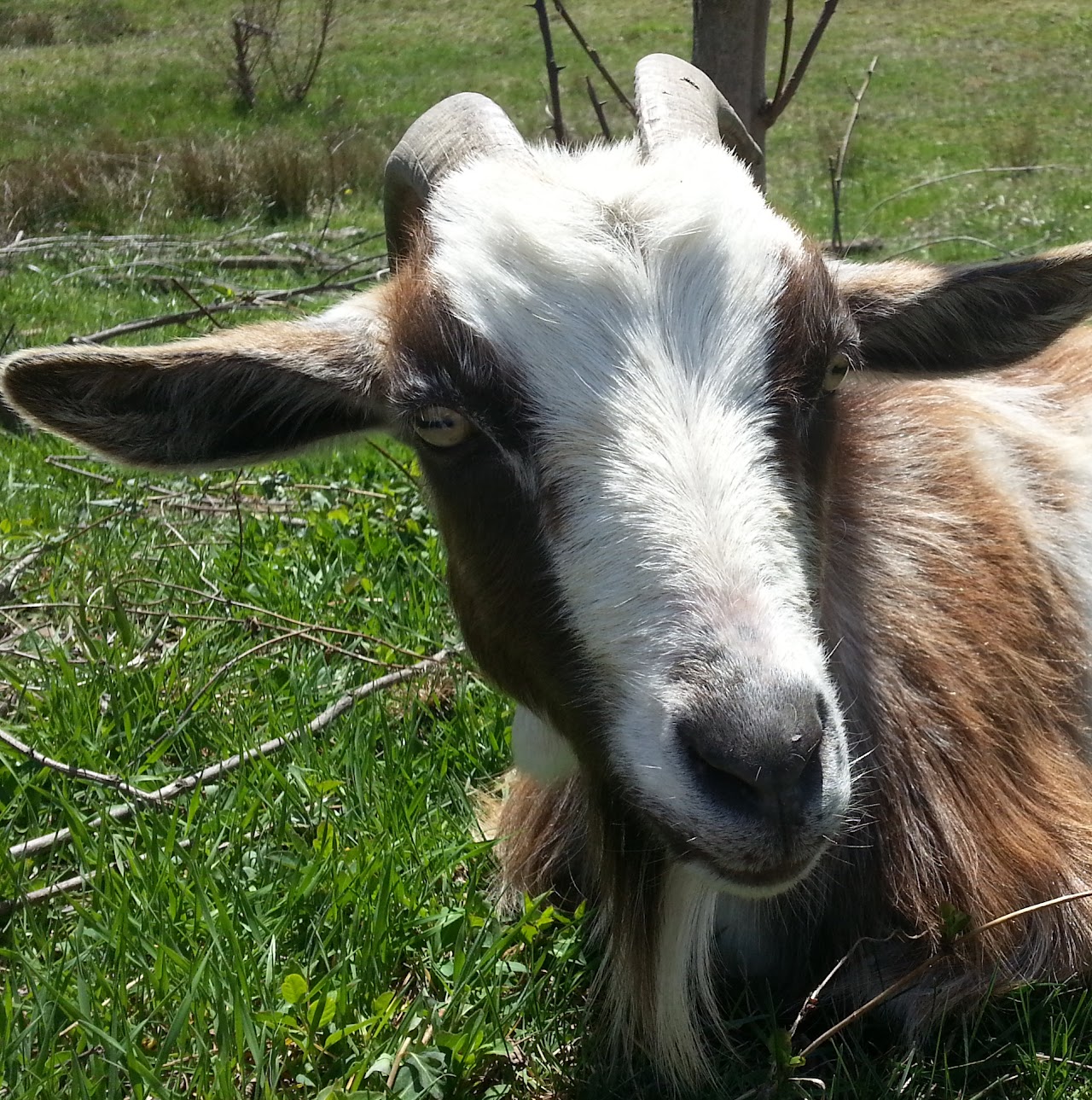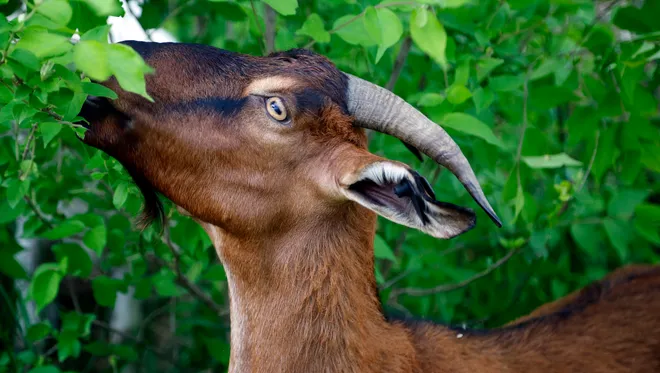The FlockWorks Goats
Photos, names and overviews will be coming in the future.
This page will always be a work in progress. We don't take near as many photos as we probably should and one unique thing about working with goats is that when they trust you, they are often facing away from you.
This page will always be a work in progress. We don't take near as many photos as we probably should and one unique thing about working with goats is that when they trust you, they are often facing away from you.

Manthy
Sweet fainting goat... supposedly.

Sebastian
Each season we generally kid in Mid-April to Mid-May.

Mildred
Our goats are conditioned and adapted to eat brush and weeds. As they go, the vegetation decreases, the soil improves and the process begins.

Kia
Gentle. Sweet. Heritage breed.
Most goats, as prey animals, are not especially fond of you approaching them. This is doubly true with Kia. She leaves anytime you try to give her a scratch, but when you turn around, she is often right next to you.